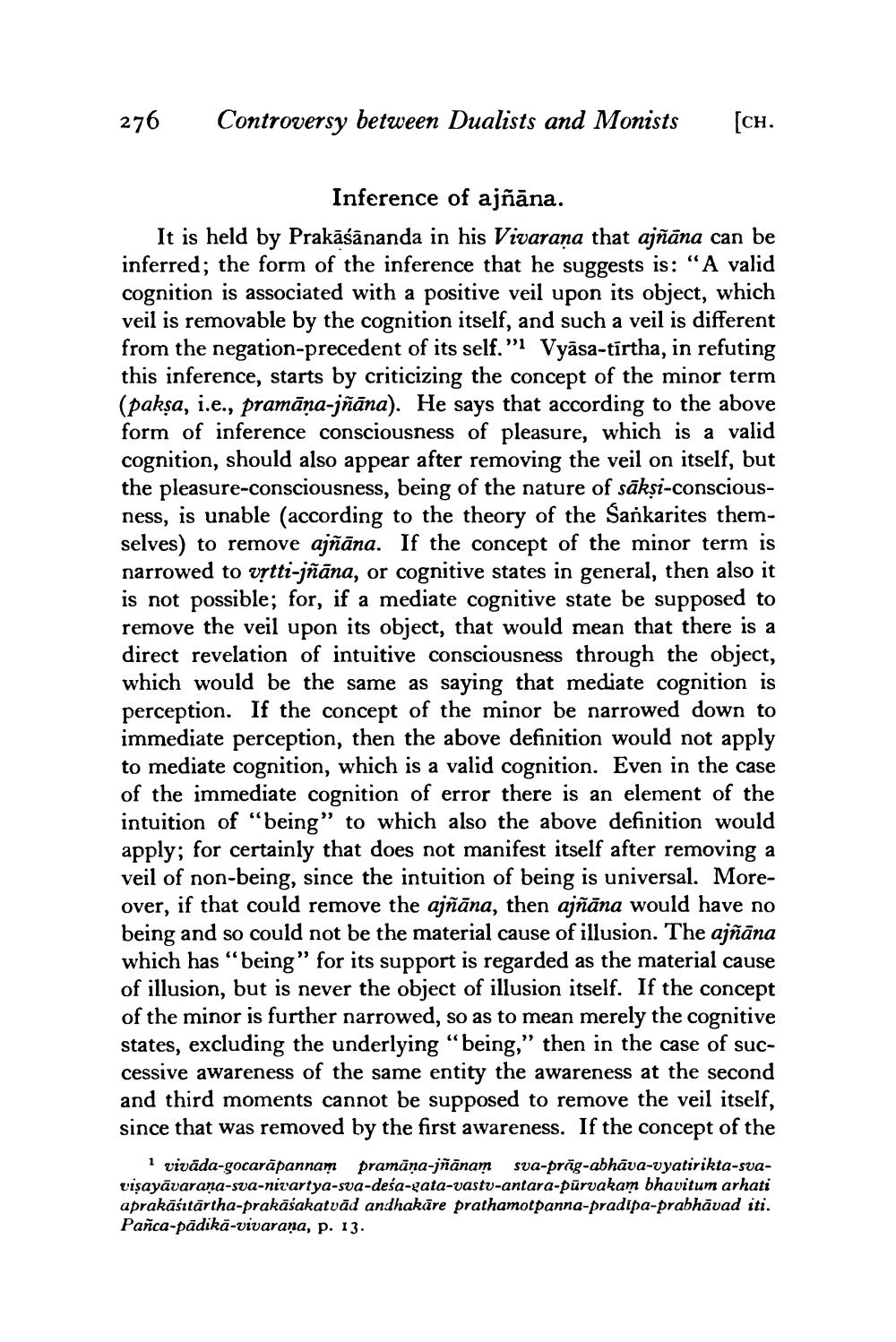________________
276
Controversy between Dualists and Monists
[CH.
Inference of ajñāna. It is held by Prakāśānanda in his Vivarana that ajñāna can be inferred; the form of the inference that he suggests is: "A valid
gnition is associated with a positive veil upon its object, which veil is removable by the cognition itself, and such a veil is different from the negation-precedent of its self.”. Vyāsa-tirtha, in refuting this inference, starts by criticizing the concept of the minor term (pakşa, i.e., pramāņa-jñāna). He says that according to the above form of inference consciousness of pleasure, which is a valid cognition, should also appear after removing the veil on itself, but the pleasure-consciousness, being of the nature of sākṣi-consciousness, is unable (according to the theory of the Sankarites themselves) to remove ajñāna. If the concept of the minor term is narrowed to vrtti-jñāna, or cognitive states in general, then also it is not possible; for, if a mediate cognitive state be supposed to remove the veil upon its object, that would mean that there is a direct revelation of intuitive consciousness through the object, which would be the same as saying that mediate cognition is perception. If the concept of the minor be narrowed down to immediate perception, then the above definition would not apply to mediate cognition, which is a valid cognition. Even in the case of the immediate cognition of error there is an element of the intuition of "being” to which also the above definition would apply; for certainly that does not manifest itself after removing a veil of non-being, since the intuition of being is universal. Moreover, if that could remove the ajñāna, then ajñāna would have no being and so could not be the material cause of illusion. The ajñāna which has "being" for its support is regarded as the material cause of illusion, but is never the object of illusion itself. If the concept of the minor is further narrowed, so as to mean merely the cognitive states, excluding the underlying "being," then in the case of successive awareness of the same entity the awareness at the second and third moments cannot be supposed to remove the veil itself, since that was removed by the first awareness. If the concept of the
vivāda-gocarapannam pramāņa-jñānam sva-prāg-abhāva-vyatirikta-suavisayāvarana-sva-nivartya-sva-deśa-gata-vastu-antara-purvakam bhavitum arhati aprakāśitārtha-prakāśakatvād andhakāre prathamotpanna-pradipa-prabhāvad iti. Panca-pädikā-vivarana, p. 13.




